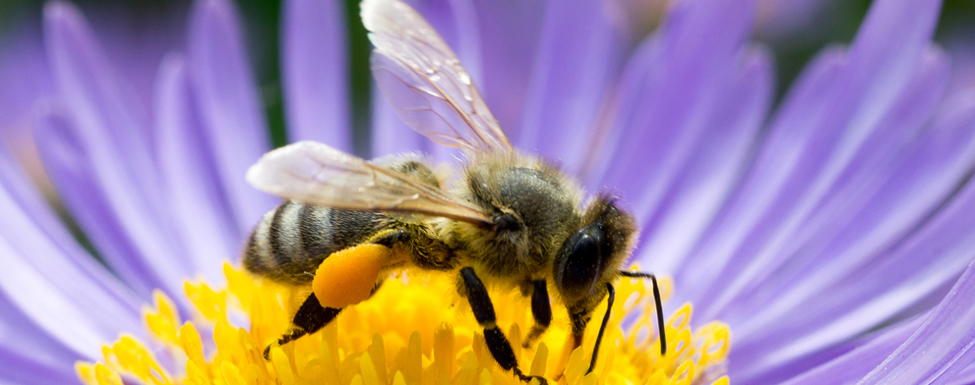Berkshire Pollinators at Bard
A world in increasing ecological peril will get a helping hand when farmers, educators and entrepreneurs gather at the sixth annual ThinkFood Conference Saturday, April 13th, from 9:30AM-4:30PM, in the Center for Food Studies at Bard College at Simon’s Rock.
This year’s theme, “Berkshire Pollinators,” was inspired by the Great Barrington Pollinators Action Plan, an educational plan designed to stimulate awareness of the need to protect and promote pollinators.
According to the plan, a worldwide phenomenon is affecting every element of life globally. Pollinator species are in decline for reasons not yet fully understood although key culprits have been identified as the expansion of human development into natural spaces; pesticide use that decimates pollinator communities and global climate change that disrupts natural cycles (including the synchronization between bloom time and bee emergence).
What is appreciated is that without pollinators, terrestrial ecosystems on earth will not survive. According to the National Academy of Sciences, almost three quarters of flowering plants on earth rely on pollinators to reproduce. One-third of human food and even greater proportions of food for wildlife are derived from these plants.
Since 2016, Great Barrington residents have worked to protect and expand pollinator habitat in the town. The Pollinator Action Plan was produced in collaboration with the town’s Department of Public Works, the Great Barrington Agricultural Commission, Conway School and stakeholders across the region. It proposes an interconnected habitat network through Great Barrington to guarantee a healthy pollinator population in Great Barrington and across the Berkshire region.
This year, Simon’s Rock will explore the problem in a day-long series of talks and panels. Thomas Seeley, author of Honeybee Democracy and Horace White Professor in Biology in the Department of Neurobiology and Behavior at Cornell University, will be the keynote speaker. He is the author of several books on honeybee behavior, including The Wisdom of the Hive, and was the recipient of the Humboldt Prize in Biology in 2001.
In his books Seeley examines the social structure of bees and how the hive makes decisions about when to swarm and where to establish a new hive. Seeley contends that bees have much to teach us about collective wisdom and democratic decision making.
His talk April 13th will address The Untold Story of the Honey Bees in the Wild.
The respondent will be Devan Arnold of Sassafras Landcare. Arnold, who specializes in working with New England native plant species and other durable perennials, works to enhance the ecological function of landscapes.
He describes ecological land care as a philosophy that tries to emulate the way nature provides food and water for all of the plants, animals, fungi and microbes that exist in a habitat without the need for outside fertilizer, pesticides or irrigation.
He will also give a hands-on workshop, How to Design a Pollinator Garden from 9:45-11:45AM. Participants will be guided through the fundamentals of site assessment and selection of hardy, regionally native plants.
ThinkFood opens with a welcome session at 9:30 AM.
Other workshops include Preserving the Bounty, a jam-making workshop by Brigid Dorsey, 9:45-10:30AM; a honey-tasting workshop with Marina Marchese of the American Honey Tasting Society, 11-11:45PM; Systems and Methods of Regenerative Growing Practices, with Jen Salinetti of Woven Roots Farm, 11-11:45PM.
Lunch in the dining hall, featuring foods from local farms and businesses, will be held from 11:45AM until 1PM, followed by How to Create a Native Plant Meadow, by Bridghe McCracken of Helia Land Design, 1-1:45PM; Becoming a Home Beekeeper with Chris Willens of the Berkshire Botanical Garden, 1-1:45PM; a workshop for students, Connecting Students to Farms and Farms to Students with Greenagers’ Heather Meehan and Will Conklin, 2-2:45PM; Managing Your Soil to Save the Planet by Jim Shultz of Red Shirt Farm; 2-2:45PM; and BAV programs and aquaponics by Emil Ghitman Gilkes from Berkshire Agricultural Ventures.
There will be a 45-minute break before the keynote address at 3:30PM.
Advance registration is required online at the link below or by downloading a form there to mail in. Space in workshops is limited so during registration, conference participants will select a workshop in each time block. The conference is free for all area students and $25 for adults, $35 for the conference and lunch.
For more information, contact Maryann Tebben, faculty in Languages and Literature, at mtebben@simons-rock.edu.

